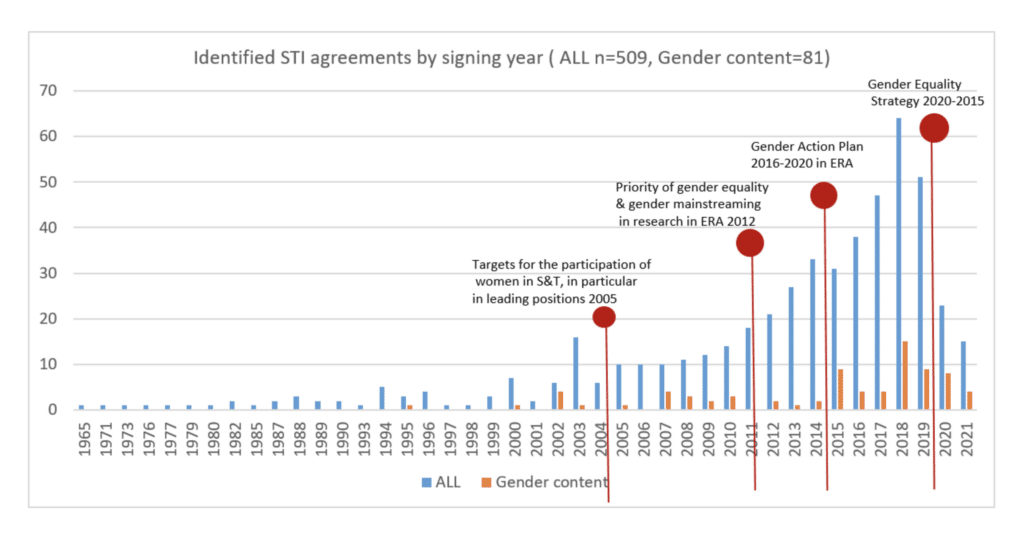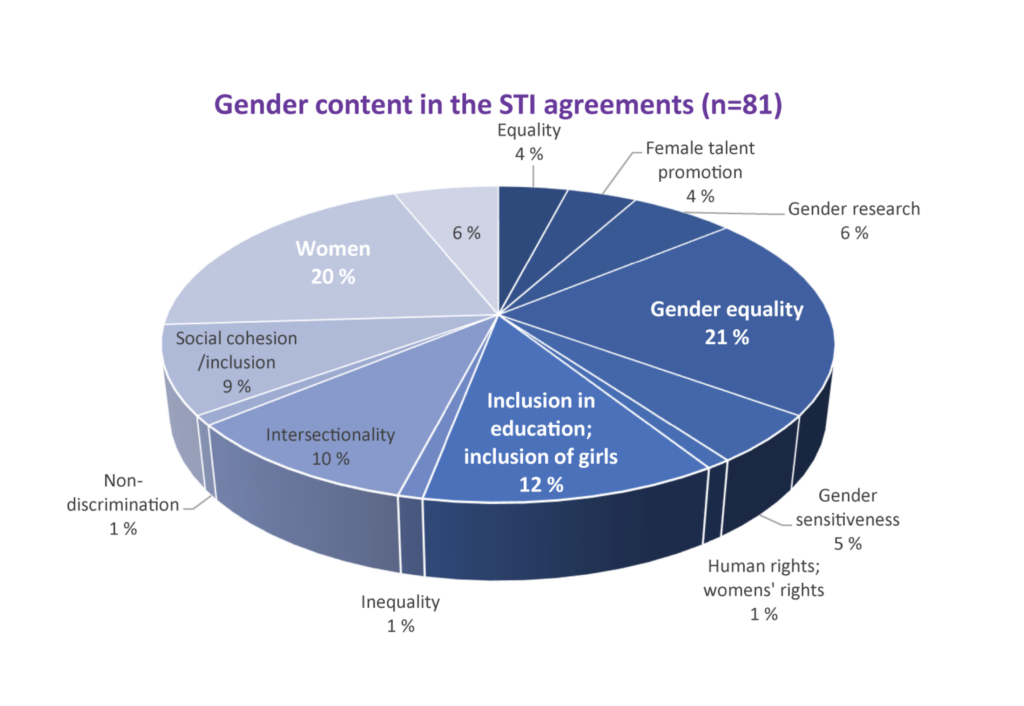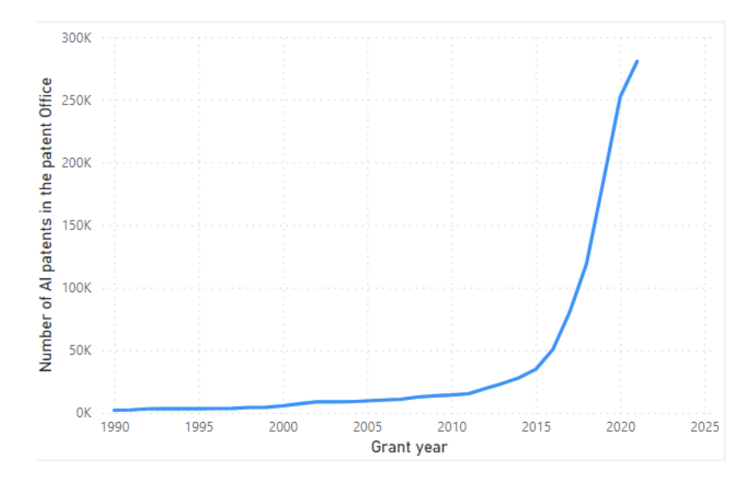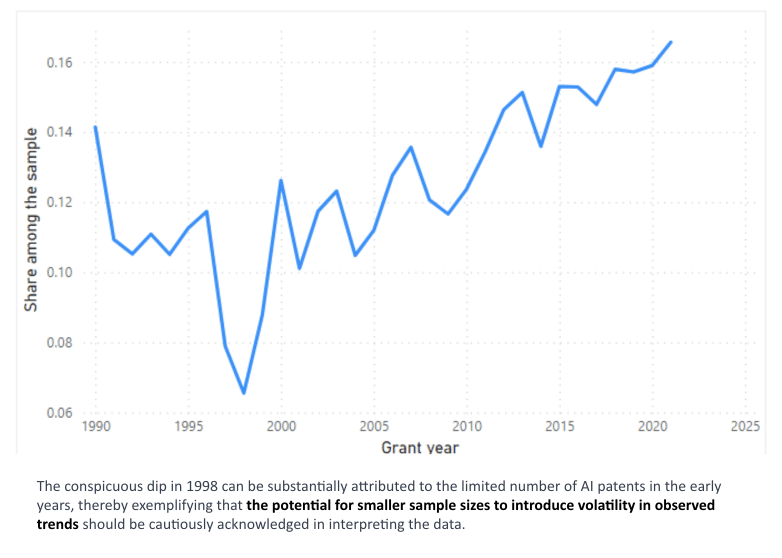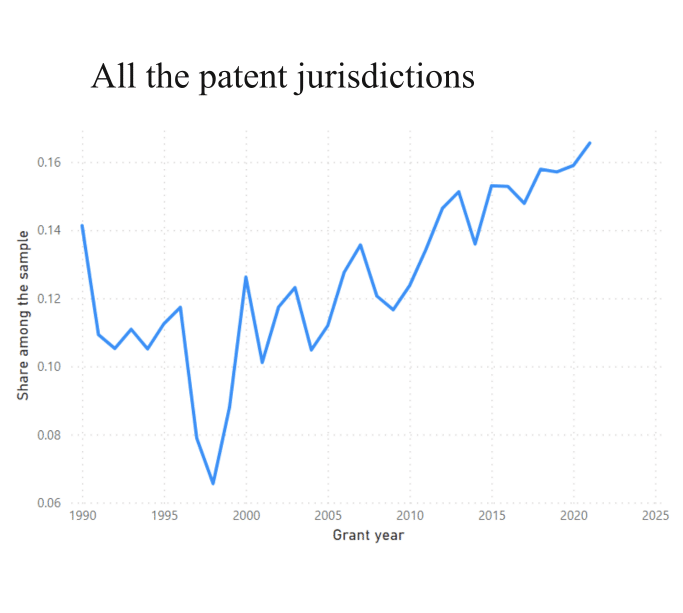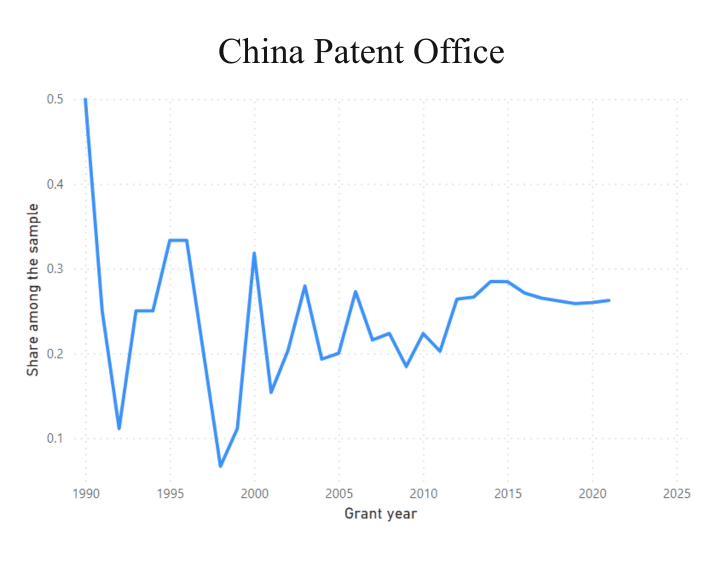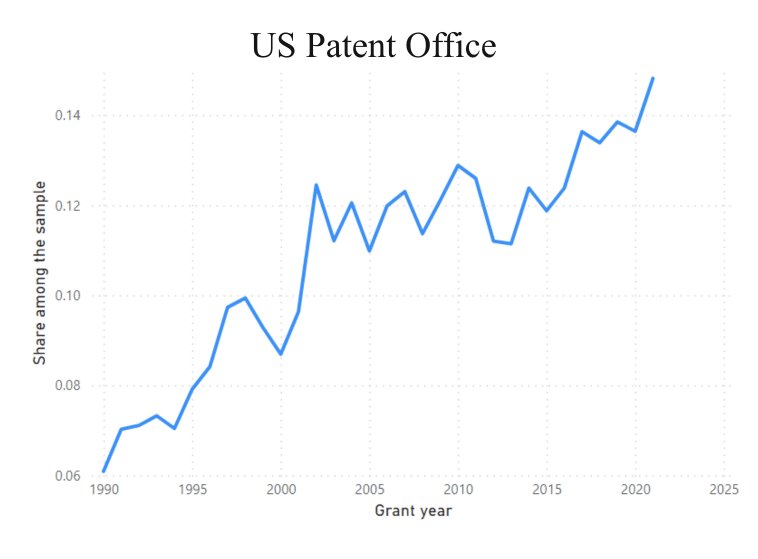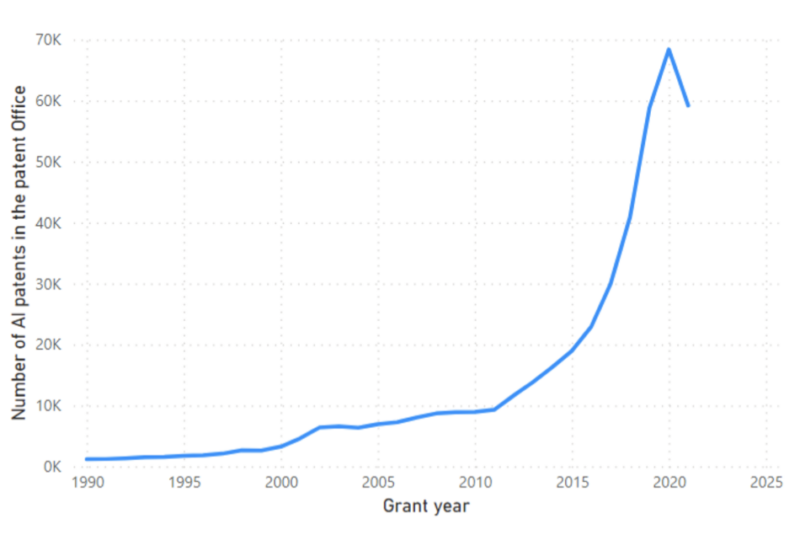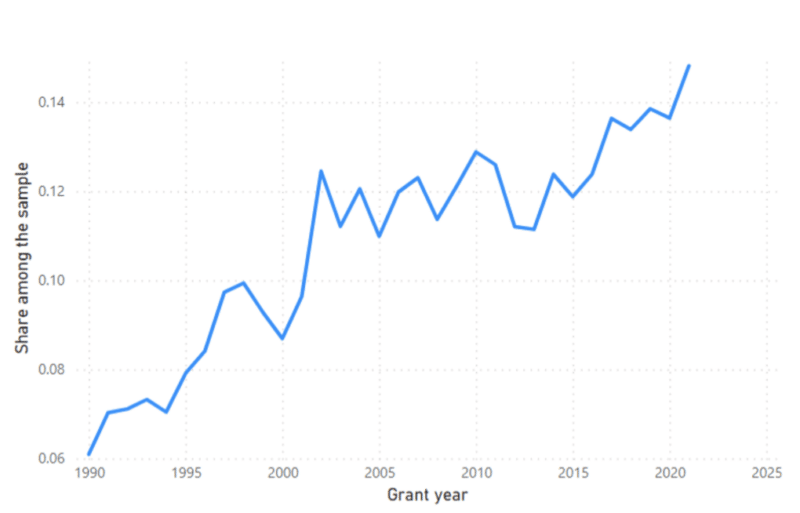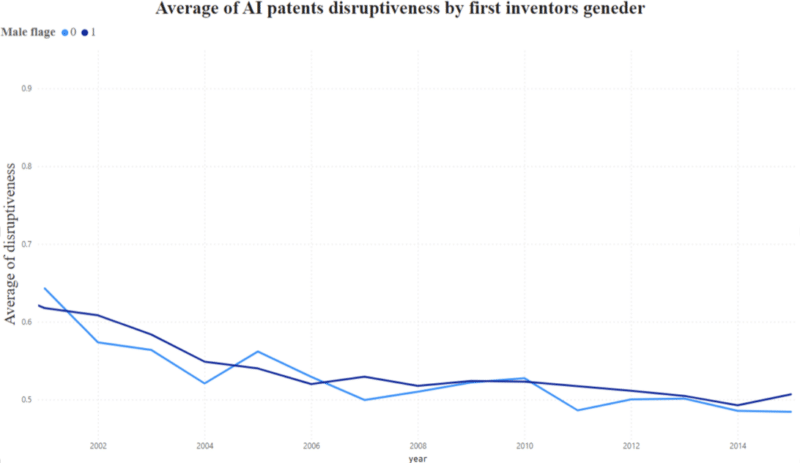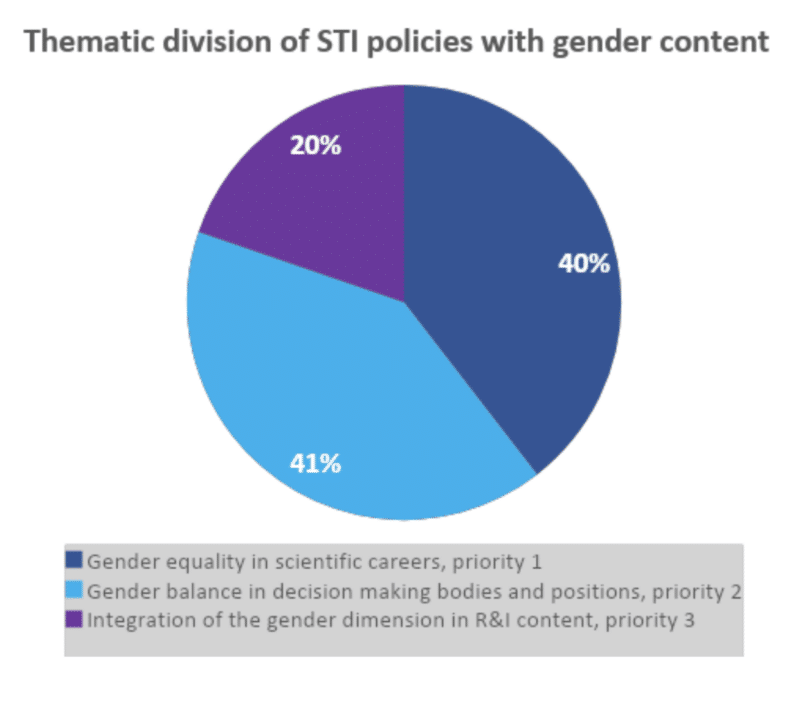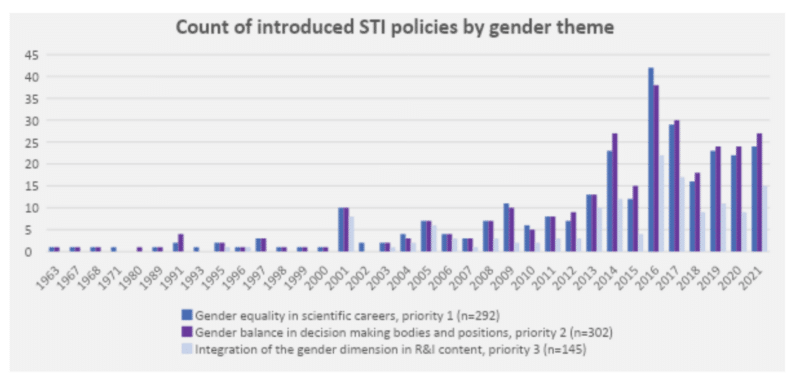Gender Equality in International STI Dialogues
Insights from international agreements in STI
Gender STI provides a framework for Gender Equality in International STI Dialogues through a mapping study of STI policies influence on Gender Equality as well as the most important polices and trends established worldwide.
Has gender mainstreaming reached international STI agreements?
The Gender STI project investigated 528 international bilateral and multilateral STI agreements from 1961 – 2021 and only 81 agreements (15%) included gender-related content. This finding shows that gender content in the STI agreements is far from mainstream. A positive sign is that gender content is observed more from 2015 onwards.
The study included STI agreements from 51 countries, the emphasis was however of the Gender STI consortium countries. Based on the data, Canada, India, and South Africa provide good practices in gender inclusion in international STI agreements, while also Spain and Finland have relatively large amounts of gender-related content in their agreements. In turn, Brazil, Argentina, and Portugal show in a negative light in our sample given that these countries have very little gender content in the STI agreements.
What kind of gender content is included in the international STI agreements?
The STI agreements referred most often to ‘gender equality’ in one form or another. This phrase was most often used to improve gender equality or promote gender balance in STI-related activities. Second used terminology related to women, for example empowering women participation in STI.
Women or females are seen as specific target of the activity that the STI agreement addresses. However, it was delightful to see that inclusion and intersectionality were also mentioned in some extent in the STI agreements.
The following example shows how gender is addressed in a health science related grant agreement between Canadian RTO and European Commission signed in 2019.
[Organisation x] is committed to include a gender perspective in all applicable activities and try to involve both women and men. Moreover, in compliance with Articles 21 & 23 of the Charter of the Fundamental Rights of the European Union, women will be encouraged to participate in the project activities. Equal opportunities will be ensured throughout the whole project activity, namely the Expert Groups and RTI stakeholder workshops, especially new therapy methods or new applications or robots underlie gender specific considerations and these need to be voiced in the expert group discussions and future policy design efforts.
What do AI patents and STI policies say about gender equality?
Gender equality in artificial Intelligence
- This analysis explores the role of female inventors in Artificial Intelligence (AI) patents that helps us to understand diversity in a fast-developing technology area.
Today’s figures
- Women and girls are 25% less likely than men to know how to leverage digital technology for basic purposes
- 4 times less likely to know how to programme computers
- 13 times less likely to file for a technology patent. (source: UNESCO, 2019)
- A key challenge is that over a third of companies employ artificial intelligence to optimise and automate their operations. Women only make up 22% of the global AI workforce.
- Gender gap in AI development and design: Women represent a minority in Industry 4.0 fields with: · 33% of science R&D positions globally (UNESCO, 2021) · Only 30% of AI professionals were women in 2022. In 2016, the figure was 26%. (WEF, 2023) · In 2021, 30 % were female in new information faculty hires in North America (AII, 2023).
- Gender gap in use of AI: ICT startups are dominated by men, only 19% of European ICT entrepreneurs are women (EC, 2019)
- Skill gap in ICT persists: Women are 25% less likely than men to know how to leverage digital technology for basic uses. (UNESCO, 2022)
Results of AI patent analysis show an increase of Women contributions in Technological Inventions
- The identification of Artificial Intelligence (AI) related patents has been conducted using the codebook provided by the PATENTSCOPE Artificial Intelligence Index, which facilitates swift identification and exploration through streamlined access, structured categorization, and provision of key search phrases and patent classification symbols.
- In accordance with the corresponding query, we retrieved patent data from PATBASE dating back to 1990.
The contrition of female inventors has not changed during the past years
In our research, we delved into the disruptiveness of patents created by inventors of genders, including males and females. To measure disruptiveness, we relied upon a study conducted by Park et al. in 2023, published in Nature.
Our findings suggest a decrease in the overall disruptiveness of AI patents. However, it's noteworthy that there is no significant difference in disruptiveness between patents associated with male and female inventors.
- Prioritize gender equality in AI by emphasizing it in STI agreements and Memorandum of Understandings for diversity promotion.
- Make AI ethics tangible by incorporating gender equality into ethical considerations for clearer development guidelines.
- Promote diversity in AI culture by encouraging women in STEM and actively working to reduce the traditionally masculine environment.
Gender objectives in STI policies
- This analysis explores the role of Gender equality in STI policies, revealing us a progress of gender equality mainstreaming in STI policy making worldwide
- Using STIP Compass data, the methodology meticulously examined gender-related policy terrain in STI through data-driven analysis, highlighting key strategies for addressing the 3 challenges:
1. Gender equality in scientific careers.
2. Gender balance in decision-making bodies and positions.
3. Integration of the gender dimension in research and innovation content.
- 354 policy documents collected from 50 countries across 6 continente
- Prepared by ministries and government departments, national and regional councils, research and funding agencies, and international organizations.
- Main thematic areas: governance, research and innovation for society, public research, emerging trends in STI policy, knowledge transfer and sharing, innovative entrepreneurship.
Gender objectives in STI policies
- Only 4 % (354 out of 11 215 documents) of STI policies address gender and inclusiveness.
- Integration of the gender dimension in R&I content is significantly less addressed in STI policies than the other two priorities by EC.
TOP 15 countries in promoting gender equality in STI
- Austria, Spain, Australia stand out in promoting gender equality through STI policies.
- Austria and Spain are prominent in promoting gender equality in Europe among European Commission initiatives, while Canada and Australia are leading countries outside Europe.
- However, many countries do not follow consistent policy in promoting gender equality in STI, given that 34% of countries in STIP data have less than 3 policies.
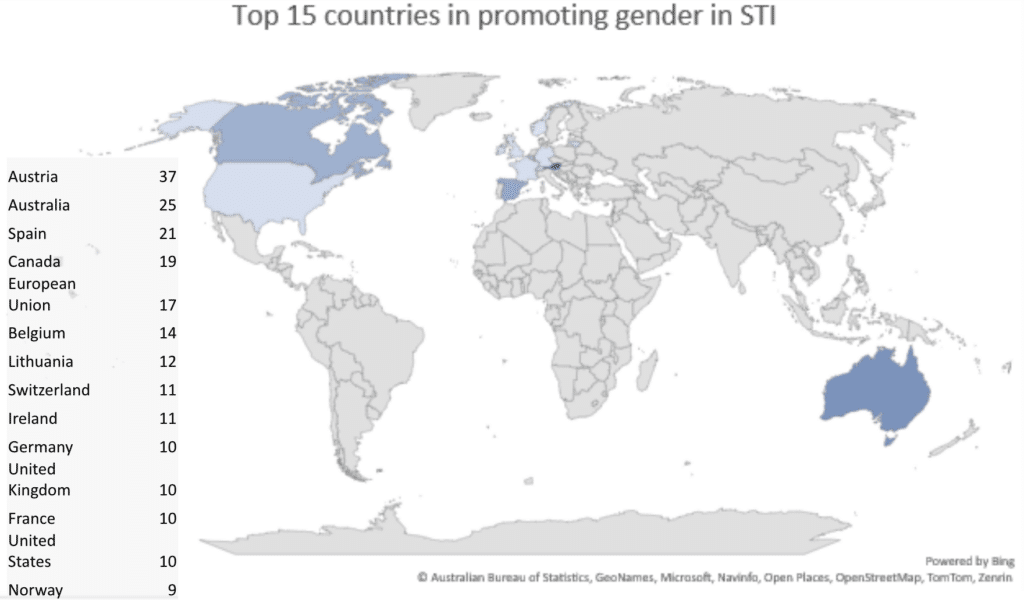
- Strengthen focus on context-specific gender and inclusiveness by enhancing the specificity of actions to address challenges in various fields within STI.
- Enhance STI policy incentives by integrating gender considerations into research, development, and innovation activities for more inclusive content.
- Revise gender language in STI, shifting from gender equality to inclusiveness to better communicate with diverse groups such as policy-makers, researchers, and entrepreneurs.
Related Project Publications and Best Practices
If you want to find best practices on STI agreements that address gender, check these out:
Moving away from traditional STI - How to improve gender equality and inclusivity in STI?
Policy Brief on Gender STI Project Results
Good practice brief of gender in bilateral and multilateral STI agreements
Mapping on gender equality in STI bilateral and multilateral agreements
Gender STI & EU Horizon Programme
Gender in STI: New frontiers in the application of a gender lens
Policies and trends
Policies
CONTACT US
The GENDER STI consortium is committed to ensure the protection of personal data and user privacy. The GENDER STI Privacy Policy aims to inform the public, website visitors and other stakeholders about how we process personal data, based on data protection principles, in accordance with Articles 12, 13, and 14 of the GDPR.
Scope. This Privacy Policy describes how and when GENDER STI — a project that has received funding from the European Union’s Horizon 2020 Research and Innovation Programme — collects, uses, and shares your information when you use the GENDER STI website https://www.gender-sti.org/
